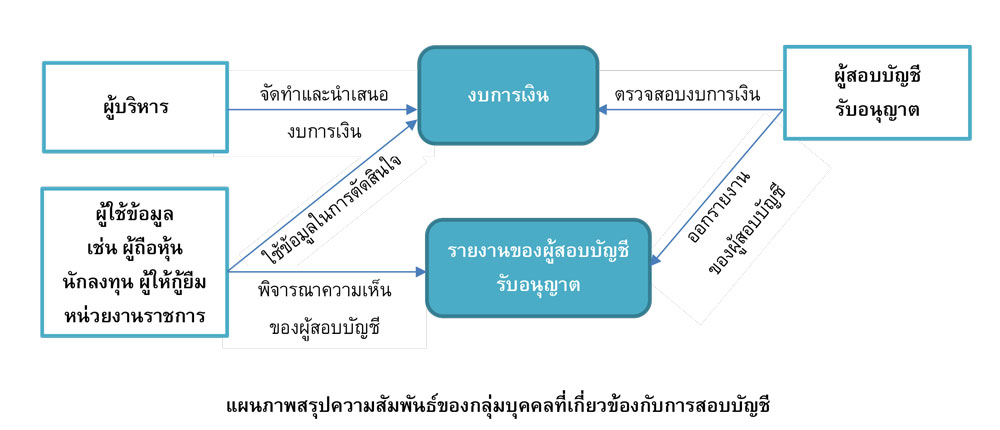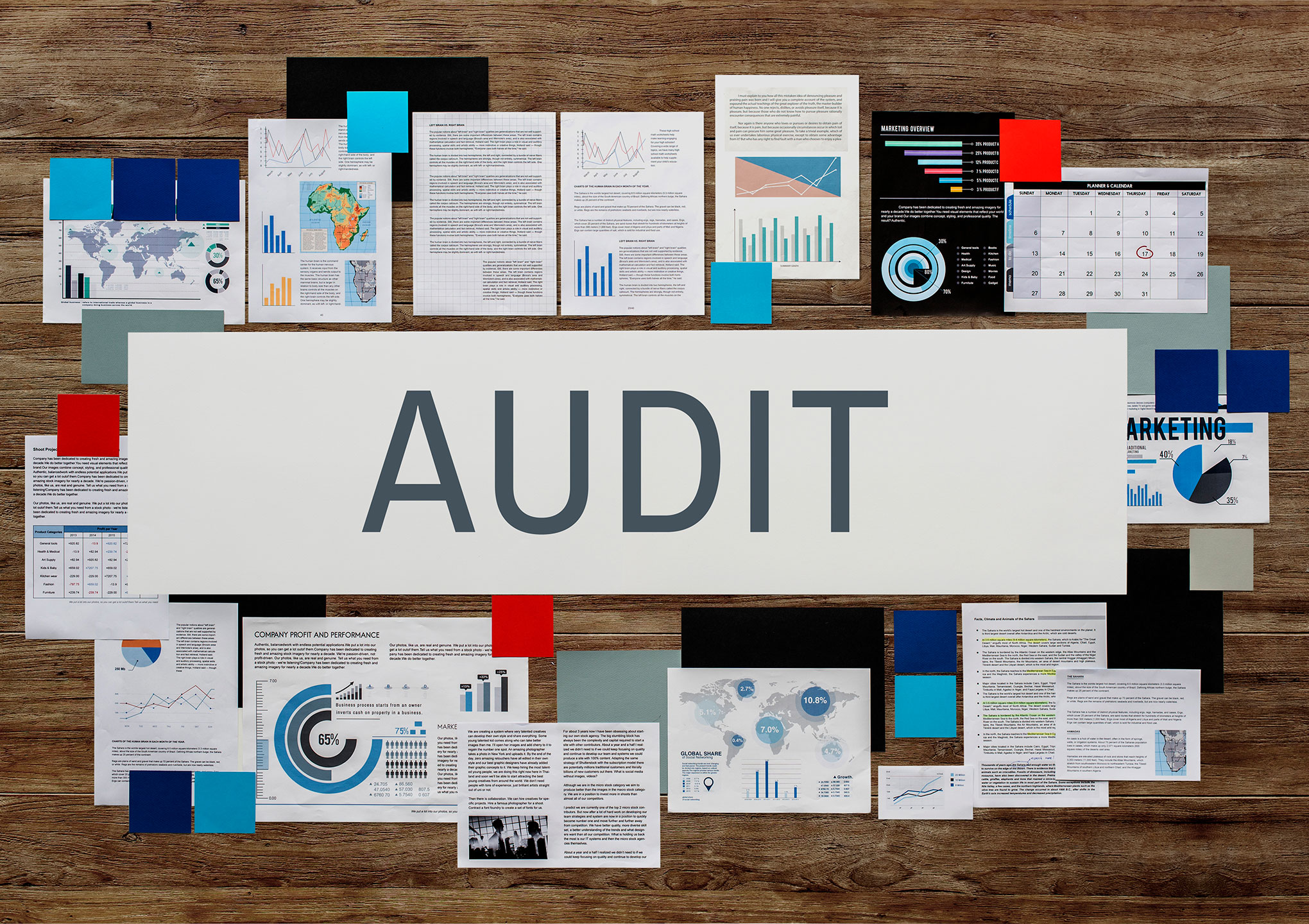Financial statements for each year It must be audited by a Certified Public Accountant (CPA) before submitting financial statements to regulatory agencies such as the Department of Business Development. The duties of the management, accounting staff and personnel in the organization are to prepare financial information so that the auditor can access the information for proper audit.
For those who want to read specific topics, you can click here.
Corporate or business executives are responsible for the financial statements.
The audit work of certified public accountants is a process that reduces the risk of using financial statement users’ information and also reduces the risk of fraud or errors that may occur in the financial statements. This means that the executives do not have to sit down and make financial statements on their own, but instead simply assign accounting staff within the organization, or they may hire an accounting office from outside the organization to collect financial information to prepare financial statements. However, corporate executives are still responsible for the transactions that occur in the financial statements, because if the management ignores and neglects the preparation of the accounts, rejects the items that appear in the financial statements, it can be called neglect of duties.
Auditors are responsible for financial statements.
The audit process begins with a risk assessment before accepting work from the business. Planning audits Collection of audit evidence until the conclusion of the audit results in the report of the certified public accountant. In Thailand, there are many laws that recognize the importance of the audit process, such as:
- The Accounting Act B.E. 2543, Section 8 and Section 11 stipulate that “(1) a registered partnership, (2) a limited company, (3) a public limited company established under Thai law, (4) a legal entity established under foreign law doing business in Thailand, and (5) a joint venture under the Revenue Code shall provide for accounting and the financial statements shall be audited and commented upon by a certified public accountant.”
- In the Civil and Commercial Code, Section 1197 stipulates that “a balance sheet shall be provided to one or more auditors for approval at a general meeting within 4 months from the date of such balance sheet”, and
- In the Public Limited Companies Act 1992, Section 109 stipulates that “a public limited company shall provide for the making and preservation of accounts, as well as audits, in accordance with the law thereof.”
Therefore, the role and duty of the auditor is to gather evidence to audit the financial information contained in the financial statements in order to draw conclusions and comment on the accuracy of the preparation of the financial statements in accordance with financial reporting standards. In summary, the auditor is responsible for “expressing the auditor’s opinion” in the “Certified Public Accountant’s Report”, which is attached to the financial statements of the business audited by the auditor.
Benefits of auditing
The auditor profession is often expected by individuals who want to take advantage of the financial statements of the business, that the financial statements that have been audited by the auditor must be of high quality and reliability. Therefore, the auditor must maintain the code of conduct of the accounting practitioner in relation to the auditor, especially the independence from the business to be audited, because even if the auditor lacks the independence to work, the audited financial statements are useless to the users of the financial statements. The auditor also lacks credibility in the event that the auditor has performed its work in accordance with professional standards. The auditor’s report, as well as the information in the audited financial statements by the auditor, will be useful to various financial statement users. in considering lending to businesses. Approval of credit lines, interest rates, including loan periods, etc. For the management of the business, they will use the information in the financial statements and auditor’s reports to make investment decisions. Cost considerations, control of expenses, profit planning, etc. Investors in the business must be interested in the financial statements that have been audited by the auditor. To be used for consideration in order to make investment decisions with the business. While the IRS is also interested in the information in the financial statements of the entity for use in assessing the annual taxation, it is said that auditing the financial statements by a certified public accountant is a task that requires knowledge, competence and independence. There is no pressure from the employer. Auditing is considered one of the areas of the accounting profession and is an important task to drive the country’s economy. The audit is therefore intended to provide confidence to users of the financial statements through the reports of the certified public accountant. whether the financial statements have been prepared in accordance with financial reporting standards; Do the financial statements present significant misinformation? Whether it’s caused by fraud or errors caused by intention or inattention, Plusitive Acccounting has a Certified Public Accountant (CPA) available to audit your business. The information in the audited financial statements is of quality. Reliable and certified by certified public accountants (CPA) Interested in service Contact us at Line ID : plusitiveaccounting


Article by Mr. Thresh Santiwongchai, CPA
Compiled by Plusitive Accounting Team





